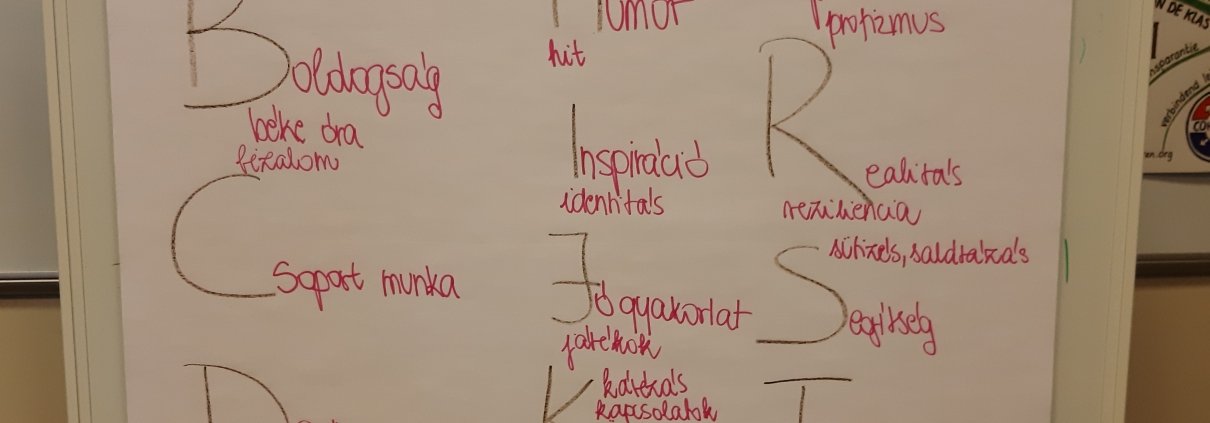Inclusion in the Dutch and Hungarian context – training report
ESHA organised a training for teachers and school leaders from the Netherlands and Hungary in Utrecht on 27-29 September 2020. The topic was inclusion, and we focused on the topic in general as well as some specific aspects such as gender equality, child participation and parental engagement, managing conflict and – most important of all – the inner journeys of teachers that influence their inclusion practices and attitudes. Participants of the training all pledged to improve the inclusiveness of their schools when the training ended.
Participants have already used the MultInclude Scoring Matrix to self-evaluate the inclusion practices and procedures their schools have in place and identified domains and dimensions to improve. Many of them have created action plans and also implemented them. Overall, we had a group of teachers present in Utrecht who are deeply committed to inclusion. Many of them come from highly disadvantaged schools. In the Dutch context it means challenging teaching environment and many students with multiple inclusion needs, but in the Hungarian context it is accompanied by lack of resources, both financial and human – the lack of assistance and support staff being the most problematic of the latter. However, there are major differences in school practices and situations across the board, and it was fascinating to see how people were motivated (but sometimes also shocked) by other schools’ experiences and practices.
The whole training was based on an experimental learning methodology and based on participant feedback it was very well received. After some activities aiming at building a group and getting to know each other, groups were offered various resources (LEGO, various types and colours of paper, clothes pegs, pens, playdoh, ropes, strings, etc.) to build their dream inclusive school. The most common wishes were to have community spaces and a garden of some kind.
The afternoon of the first day was dedicated to self-discovery with active listening and inquiry activities, role play where they all had to play a non-teacher role, exploring their own identities and their feelings and attitudes towards conflict situations. The day ended with collecting the potential positive outcomes of conflict.
The second day was focused on how personal journeys as well as the internal and external realities of schools impact inclusion. We tackled various elements from the inner diversity of the teacher to legislative frameworks for schools. There was special focus on the meaningful participation of children regardless their age and background as well as the engagement of all parents. As nearly all participants were female, we ended the day with an interesting series of activities on gender equality, focusing on adults, thus the teachers could continue their internal journeys.
On the final day of the training we only had Hungarian participants, so we went even further with experimental and experiential learning. We took the group to Amsterdam where we combined the exploration of this very diverse and inclusive city with learning activities. While they had a hands-on experience with inclusion and also being excluded since most of them do not speak any English, we could explore diversity of opinions, comfort zones and also harvested their take-aways from the training.
Teachers and school heads from a total of 32 schools have pledged for becoming more inclusive at the end of the training, signing vision statements in this regard.





Thank you Eszter for this nice reports. I understand what you say about difficulties in lacking of resources to tackle inclusion,, but it seems that these teachers are not lacking of enthusiasm!